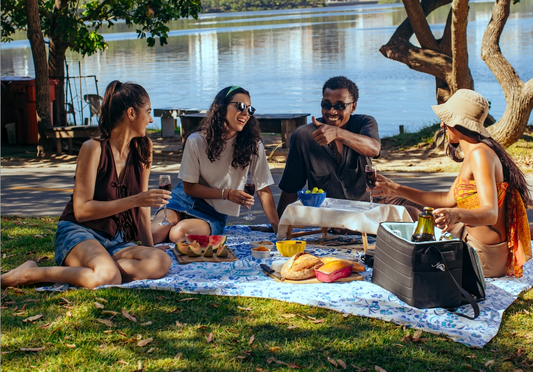Unveiling our new biomaterials hub in the Philippines
The materials business is similar to most other businesses: we compete on price and performance. But when you’re competing with plastics, you have to deal with a third factor: scale.
With our new biomaterials production facility in the Philippines, we’re ready to compete on all three. Here’s how:
- Agriculture subsidizes our costs, since we start with big ag’s waste
- Nature perfected performance, since we’re using natural fibers that evolved to keep coconut flesh cool in the tropical heat
- Manufacturing partnerships are how we scale, plugging our tech into existing supply chains and facilities
This partnership in the central Philippines is special. We’re working with Lamac Multipurpose Cooperative, a network of 150,000 smallholder farmer owners who vote on decisions and share in profits. Lamac started as a community farm stand in the mountains of Cebu Island; its growth is a testament to Ellen Limocon’s leadership and an island full of hard work.
Our partnership includes the Philippines government, especially the Philippines Coconut Authority and the Department of Trade and Industry, which have provided physical infrastructure and removed barriers at every turn.
Our partnership stretches across to India, where machinery and materials expertise is disseminated through our tireless engineering team, and all the way to the UNDP and Nordic development agencies, which funded much of the buildout.
The result is an advanced biomaterials hub close to raw material and end users, competitive on cost and built to scale.
It’s an achievement on its own and it’s a model for how we grow. 400 billion kg of plastic will be produced this year and new plastic factories are still being built, so we’d better grow fast.
The positive impacts of this facility are way too many to list; we’ll explore each and discover even more in the months to come. For now, I will just recognize the impact it’s having on local kids, who see coconut fiber stitched into insulated packaging down the street and now ask their parents, like our Operations Director Julius, why more plastic stuff they buy and use isn’t made with local, natural materials instead.




2 comments
I wanna know if you are producing roof insulators and if you already have a distributor in the Davao Area.
Quiero saber más sobre las máquinas a utilizar para la extracción de fibras de coco